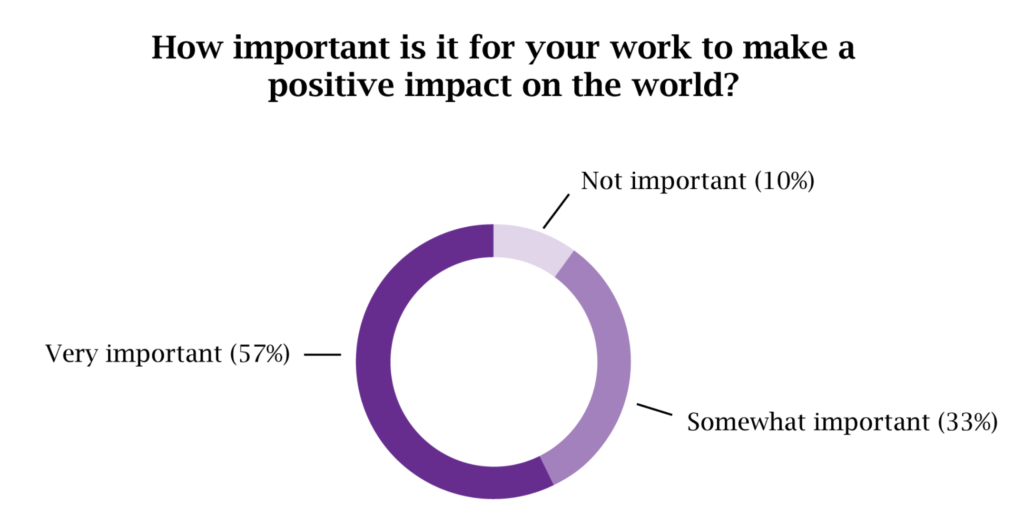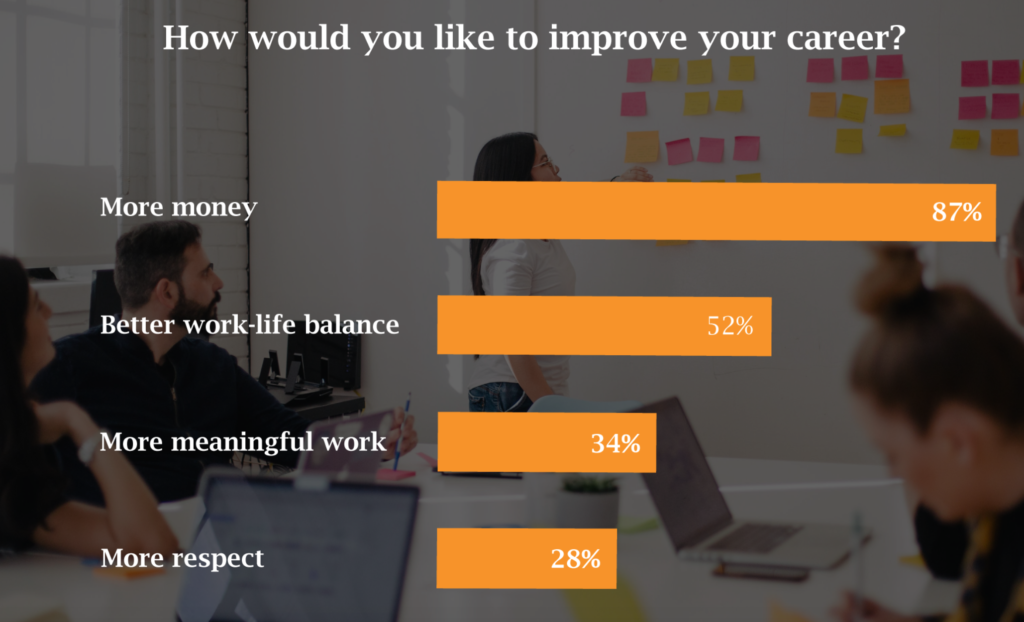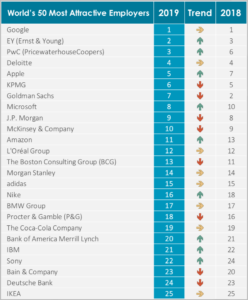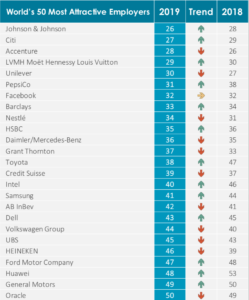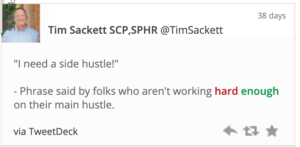My wife always tells me it’s actions, not words that make a difference. You can say all of this great stuff, but if you do nothing, it’s meaningless. I think we would all agree with this.
So, when we hear graduating students, candidates, and employees tell us what they really want is “Meaningful Work” in their careers, we have to understand that those are “Words”! Not actions, just words. A new study from Olivet Nazarene University Meaningful Work Survey asked this question and, predictably, found this:
So, yeah, 90% of us believe that meaningful work is critical for our career and happiness. Sounds about right, those ‘words’ tend to always come out when we talk about our dream job, etc.
Then the study asked another question. It was basically, given your current career, job, etc. what is the one thing that would make it better? An action. But, remember those words!? What you would believe would make their career/job better should be “more meaningful work”! 90% of you idiots just answered that is was super important for your career and happiness!
Here’s what they actually said:
Show. Me. The. Money!!!!
Yep, you know I love this! “We just a job that saves puppies! That would make me so happy!” Oh, wait, saving puppies only pays $23,000 per year!?! Yeah, screw those puppies! I want to work for a private equity firm! I’m a boat, bitch!
Want to retain your employees? Stop trying to make your employees believe that the rubber vomit you’re manufacturing matters and pay them more and give them flexibility! Stop asshole managers from treating their people bad! And magically, you’ll have high retention and your people will love working for you, even though you don’t save puppies!
I get it, deep down, we all want to do something that changes the world for good. We want to help others, and save puppies. And the concept of meaningful work does really matter, given all other things, like compensation, flexibility, great leaders and co-workers, etc. are equal.
If I can make six figures a year saving puppies, I’m saving puppies. You’re saving puppies. We are all saving puppies!
But it doesn’t, so our actions speak way louder than our words when it comes to career choices and change. Meaningful work is not the most important thing for people in their careers. Its something to consider, but don’t get too caught up in believing it’s going to fix all of your employee experience issues!

